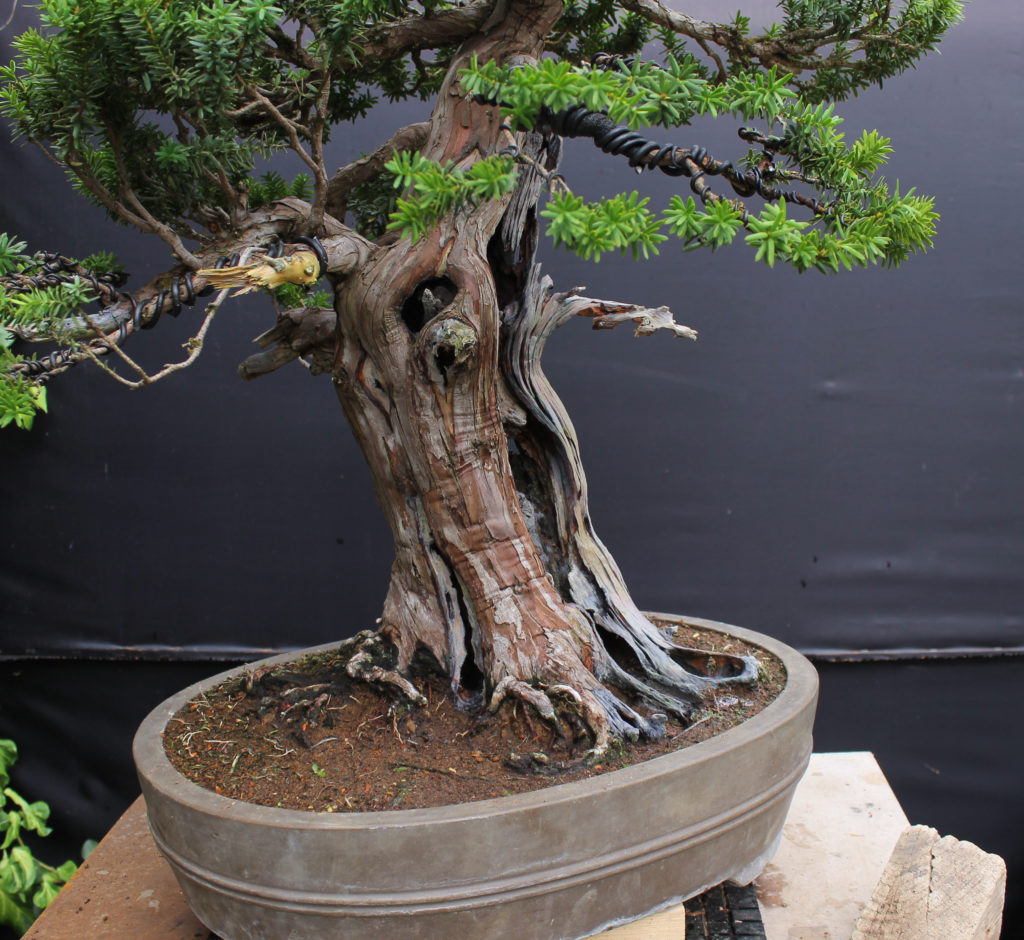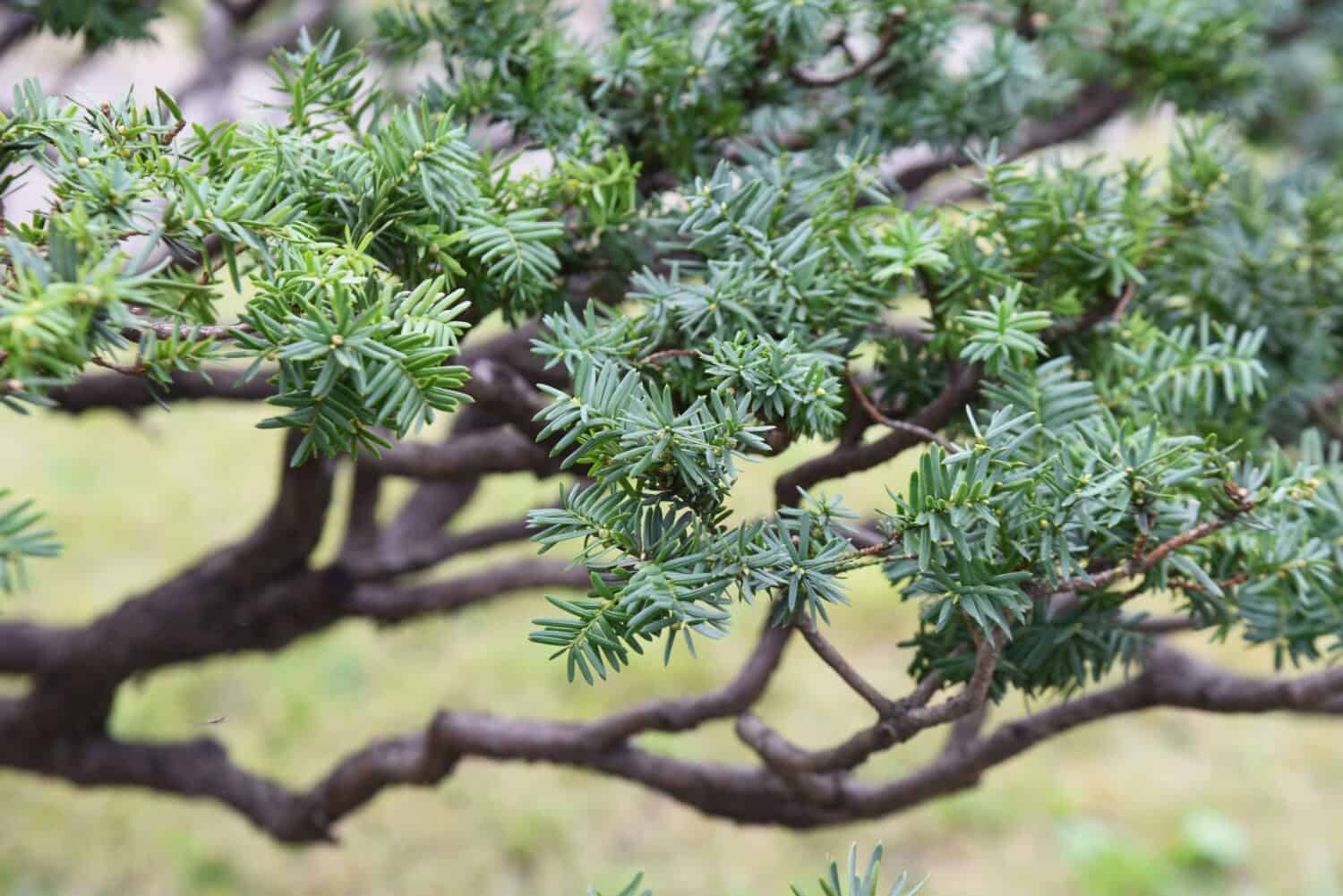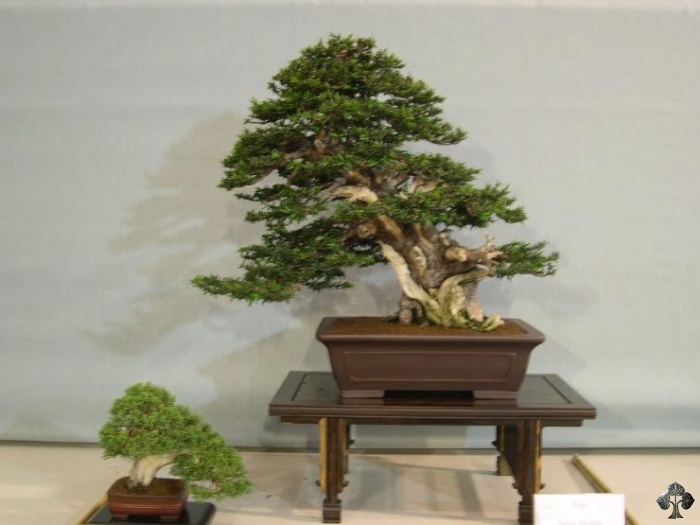Yew Bonsai trees need regular watering, proper sunlight, and occasional pruning. They thrive in well-drained soil and moderate humidity.
Yew Bonsai trees are popular for their resilience and beauty. These trees require specific care to flourish. Ensure they receive adequate sunlight, but avoid direct, intense rays. Water them consistently, keeping the soil moist but not waterlogged. Pruning helps maintain their shape and encourages new growth.
Use well-drained soil to prevent root rot. Regularly check for pests and address any issues promptly. With proper care, Yew Bonsai trees can thrive indoors or outdoors, adding a touch of elegance to any space. Proper care ensures their longevity and vibrant appearance, making them a rewarding addition to your plant collection.
Introduction To Yew Bonsai
Yew bonsai trees require careful attention to thrive. Regular pruning, proper watering, and adequate sunlight ensure their healthy growth.
History And Origin
The Yew tree has been around for centuries. People have admired its beauty and resilience. Originating in Europe and parts of Asia, it was cherished by ancient cultures. The Yew tree was often found in sacred places. Monks and priests valued it for its long life and strength.
Unique Characteristics
Yew Bonsai trees are known for their dark green needles. These trees have a unique, rough bark. They are very hardy and can live for many years. The Yew Bonsai can be shaped into different styles. They are slow-growing, which makes them perfect for bonsai enthusiasts. Their flexibility allows for creative designs.

Credit: bonsai4me.com
Choosing The Right Yew Bonsai
Selecting the ideal yew bonsai involves understanding its specific care needs. Ensure proper watering, sunlight, and pruning for optimal growth. Regularly check for pests to maintain a healthy tree.
Popular Varieties
English Yew and Japanese Yew are popular choices. English Yew has dark green leaves. Japanese Yew has bright green leaves. Both types can be shaped beautifully.
Selecting Healthy Plants
Pick plants with strong roots. Look for vibrant green leaves. Avoid plants with yellow or brown leaves. Check for pests or diseases. Healthy plants grow better and live longer.
Ideal Growing Conditions
Yew bonsai trees thrive in well-draining soil and partial sunlight. Consistent watering ensures their roots remain healthy. Regular pruning helps maintain their shape and encourages new growth.
Light Requirements
Yew bonsai trees thrive in bright, indirect sunlight. They can tolerate some direct sunlight but not too much. Too much sun can cause the leaves to scorch. It’s best to place them near a window that gets some shade during the day.
Temperature And Humidity
These trees prefer cooler temperatures, ideally between 60-75°F. They can survive in lower temperatures but should be protected from frost. Maintaining moderate humidity levels is essential. Dry air can stress the tree. A humidity tray can help in keeping the air around the tree moist.

Credit: a-z-animals.com
Soil And Repotting
Proper soil mix ensures healthy Yew Bonsai growth, while repotting every 2-3 years prevents root-bound issues. Use well-draining soil to maintain optimal moisture levels.
Best Soil Mix
A good soil mix is important for yew bonsai trees. Use a mix of akadama, pumice, and lava rock. This mix provides good drainage and nutrients. Avoid heavy soils that retain too much water. Yew trees need soil that dries out between watering.
Repotting Techniques
Repot yew bonsai trees every two years. Spring is the best time for repotting. Remove the tree from its pot gently. Trim the roots to keep them healthy. Place the tree in a new pot with fresh soil mix. Water the tree well after repotting.
Watering And Fertilizing
Yew bonsai trees need regular watering. Keep the soil moist but not soggy. Water the tree deeply once the topsoil feels dry. Use a watering can with a fine nozzle. This helps to avoid soil erosion. Water in the morning for the best results. Reduce watering in winter.
Fertilize the yew bonsai tree during the growing season. Use a balanced liquid fertilizer. Apply fertilizer every two weeks. During winter, reduce the frequency to once a month. Avoid over-fertilizing as it can harm the tree. Always follow the instructions on the fertilizer package.
Pruning And Shaping
Pruning and shaping your Yew Bonsai tree encourages healthy growth and enhances its aesthetic appeal. Regular trimming helps maintain its desired form and prevents overgrowth.
Tools And Techniques
Sharp tools make clean cuts. Clean cuts help the tree heal faster. Always use pruning shears and concave cutters. These tools remove branches safely. Use wire cutters to shape the tree. Wires help guide the branches. Wrap wires gently around branches. Check wires often to avoid damage.
Styling Tips
Start with a clear vision of your tree’s shape. Trim long branches to encourage growth. Remove dead wood and damaged leaves. Balance the tree by trimming evenly. Use wiring to create graceful curves. Be patient as the tree grows. Regular pruning keeps the tree healthy. Always observe the tree’s response to changes.
Pest And Disease Management
Yew bonsai trees can face several pests and diseases. Aphids and spider mites are common pests. These tiny bugs suck the tree’s sap. Fungal infections can also occur. They often show as brown spots on leaves. Root rot happens if the soil stays too wet. Yellowing leaves can be a sign of stress or disease.
Keep the tree healthy to prevent issues. Water the tree properly. Avoid overwatering. Check the leaves regularly for pests. Use a mild insecticidal soap if needed. Make sure the tree gets enough sunlight. Prune dead or diseased branches quickly. Use well-draining soil to avoid root rot. Fertilize the tree in spring and summer for strong growth.
Seasonal Care
Ensure your Yew Bonsai thrives by providing seasonal care. Prune branches in spring and protect roots from winter frost. Maintain balanced watering throughout the year.
Winter Protection
Yew bonsai trees need special care in winter. Keep them away from cold winds. Place them in a sheltered spot. Use mulch to protect the roots from frost. Water the tree less but don’t let it dry out. Check for pests hiding in the branches.
Summer Maintenance
In summer, yew bonsai trees need more water. Water them early in the morning. Avoid watering in the hot afternoon. Provide shade to protect the leaves from burning. Trim new growth to maintain the tree shape. Use fertilizer every few weeks to keep it healthy.

Credit: www.bonsaiempire.com
Conclusion
Caring for a Yew Bonsai tree can be a rewarding experience. With proper care, it will thrive beautifully. Remember to water, prune, and provide adequate sunlight. Regular maintenance ensures a healthy, stunning bonsai. Embrace the joy of nurturing your Yew Bonsai and enjoy its lasting beauty.
Happy gardening!

